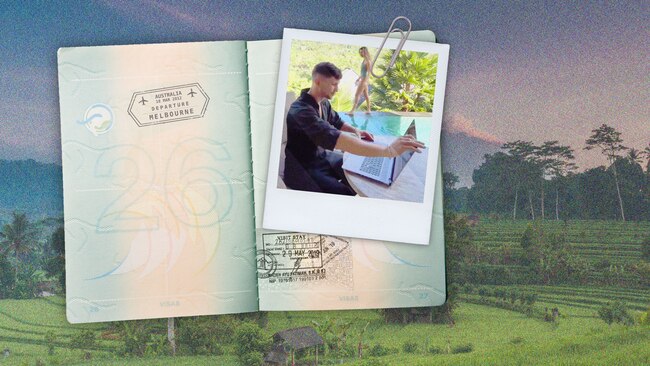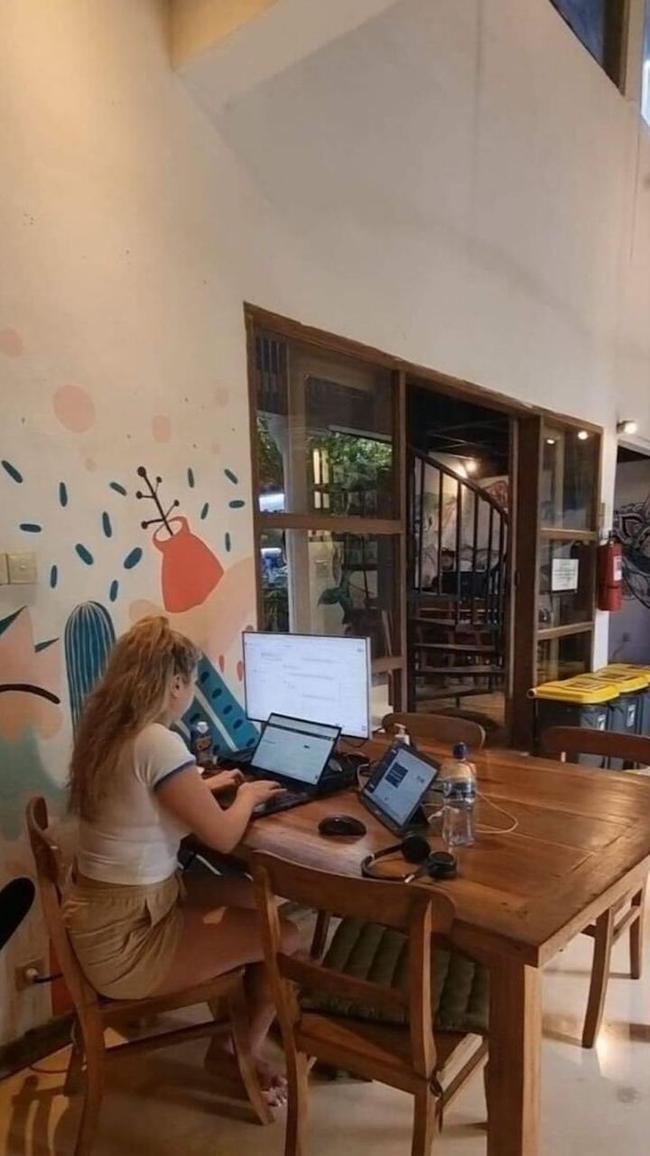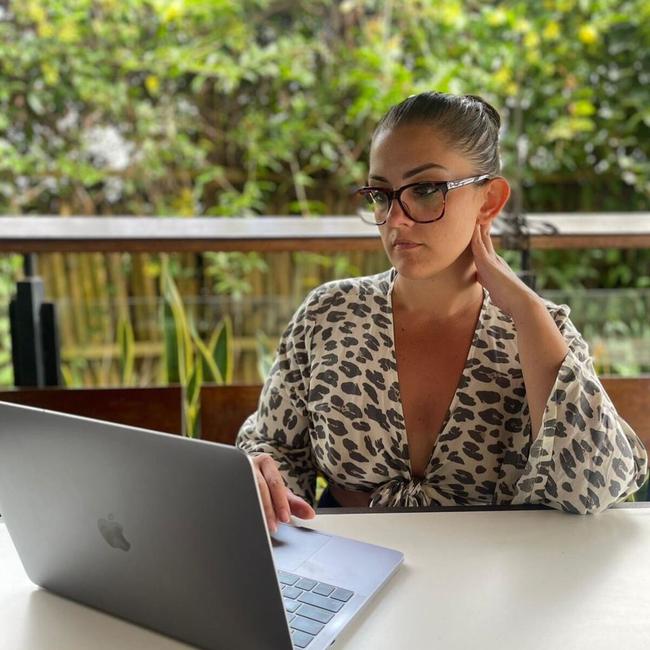How to move to Bali but keep your job
Indonesia wants you to come and live your digital nomad dreams in Bali.

Indonesia wants you to come and live your digital nomad dreams in Bali.
Thousands of Australian workers have flocked to Bali to remedy their pandemic burnout and capitalise on widespread workplace flexibility.
Bali has long been crawling with free spirits who have rejected the 9-to-5 office slog for remote work by the pool, and now Indonesian authorities are hoping to cash in on the growing flexible work movement.
Last week, the Minister for Tourism and Creative Economies Sandiaga Uno announced the "Digital Nomad" visa, which is a rebranding of the existing B211a tourism visa with a more explicit name. The intention was to "increase and ... automatically have an impact on economic revival", Uno said, although no new visa has actually been recognised, causing some confusion.
This push for "digital nomads" to choose the island comes while the Indonesian government considers a five year Digital Nomad visa.
Some Australian Digital Nomads are incognito, not divulging to their employers (or employees) that they have flown hours to a sunny oasis. Others are freelance or taking advantage of new post-covid workplace policies that allow them to sign on from anywhere.
And, the trend is catching on. Other countries, most recently Malaysia, are announcing their own Digital Nomad visas.
So, what's it really like being a Digital Nomad?
Besides some internet outages and a lingering "Canguu cough", tech worker Fayrouz Harake said her three months in Bali was an affordable antidote to the chilly hustle-culture of Sydney.
After long-lasting covid lockdowns, Fayrouz hunted down a job that allowed to her work "from anywhere" for four months of the year, which she said was largely unheard of before the pandemic.
She booked return flights to Bali, a $2k/month co-working and co-living space in Canguu, and got a "visa on arrival". After a month there, she began working remotely from cafes or co-working spaces around the island.
The visa-on-arrival allowed her to holiday for 60 days (after one extension at 30 days), before she went on a "visa run" to Vietnam and returned to spend another month on the island.

Online employees who work for international employers in Bali can currently use visas on arrival, or the B211a tourism visa, which is valid for 60 days and extendable up to 4 times (each extension for 30 days) for a total of six months. Even though online work for foreign companies it is not listed explicitly as an "activity" for the visa, the Consulate General of the Republic of Indonesia in Sydney said the Tourism Visit Visa (B211a) could be used for that purpose.
There are some "adjustments" to nomad life, Fayrouz said, but the pros outweigh the cons.
"The internet isn't going to be the greatest. The speed (of internet) at cafes isn't going to be the best. Everyone gets Bali Belly. Mosquitoes are really bad. Obviously there are adjustments going in and you need to be open to that," she said.
"(But) here are so many likeminded people doing really amazing things, whether it's drop-shipping, tech work, creating their own brands, there's a lot of influencers promoting themselves. You meet a lot of interesting characters from around the world."

"Bali is so cheap, the cost of living is so cheap compared to Sydney, for someone who has their own business and set themselves up, you could save a lot of money living in Bali."
With the attention around Digital Nomad schemes, some locals are reportedly unnerved by the thought of long-term tourists settling in Bali and impinging on the cultural heritage. It is something remote worker Stephanie Vanessa said was a valid concern - the irony not lost on her.
"We don’t want whole bunch of expats to come and change the culture and build villas. It's a real juggle ... People here, expats and foreigners, feel the same way, they come to this place for the culture," the Melburnian said.

For the 35-year-old freelance event producer, a week long holiday in Bali turned into a four month stay. She became "burnt out" when her industry came crumbling down during the pandemic and then supercharged when events returned.
Now, she says has the best work-life balance she's had in her career, while staying at a co-working, co-living space in Ubud at the centre of the island.
"It's the cost of living and the cultural aspect as well. I'm heavily involved in health and wellness space on a personal level, so being able to do all that," she said.
"Back home, I barely had time to go to the gym. Now I go four to five hours of personal development a week, healing modalities - anything from inner child healing, yoga practices, acupuncture."
She has also had time to work on side projects like an event management software. Besides some tricky regulatory issues around visas and paperwork, she said it was "pretty amazing".


